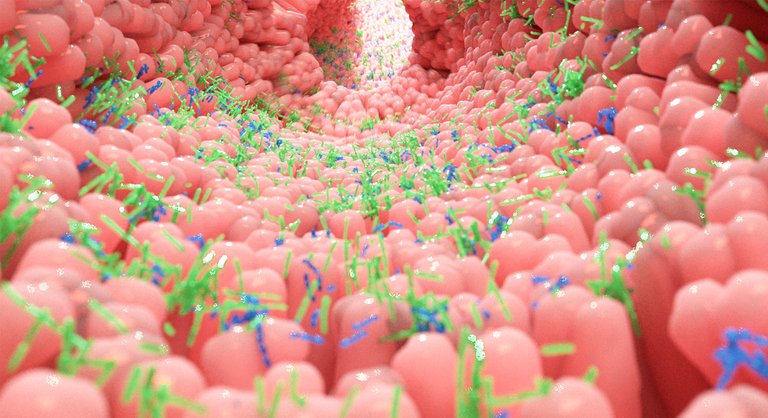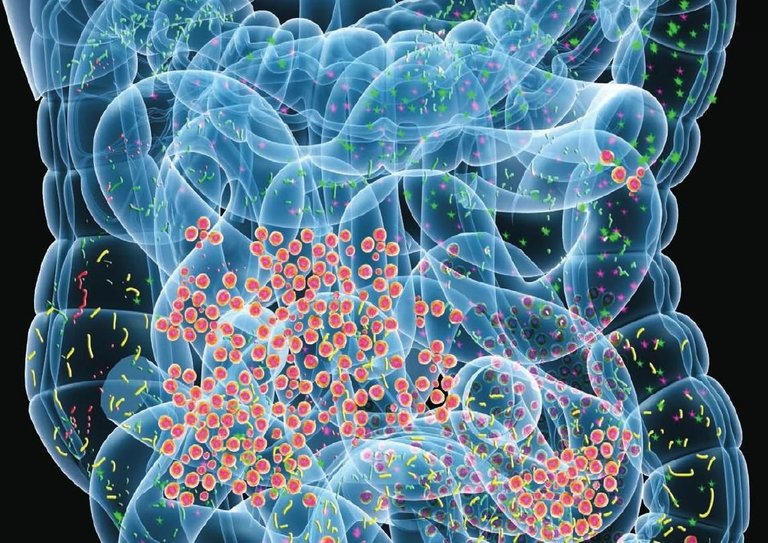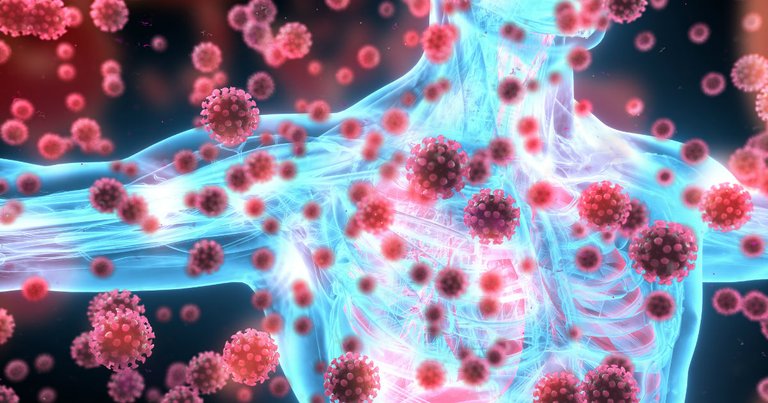
Source
The term microbiome was introduced at the beginning of the last century by the Russian Nobel laureate Elie Metchnikoff and refers to the set of microorganisms that each organism houses inside and that in a certain way defines and differentiates it from the others.
El término microbioma fue introducido a principios del siglo pasado por el premio Nobel ruso Elie Metchnikoff y se refiere al conjunto de microorganismos que cada organismo alberga en su interior y que en cierta manera le define y diferencia de los demás.
I say that it differentiates them because the microbiome is unique to each individual of each species as well as the genome, it coexists in symbiosis with the organism in which it is housed and has a great impact on the correct functioning of the organism of its host.
Digo que los diferencia porque el microbioma es único de cada individuo de cada especie lo mismo que el genoma, convive en simbiosis con el organismo en el que se aloja y tiene un gran impacto en el correcto funcionamiento del organismo de su huésped.
About 100 trillion microbes are housed in the human body, there is the paradox that we all have more bacterial cells than human cells in our body, so it can be said that we are more bacteria than humans if we rely on the number of cells in each kind.
En el cuerpo humano se alojan unos 100 billones de microbios, se da la paradoja de que todos tenemos en nuestro cuerpo más células bacterianas que humanas así que, se puede decir que somos mas bacterias que humanos si nos basamos en el número de células de cada tipo.

Source
The human microbiome project began in 2007 and aims to define all the microbial species in the human body and discover how they can affect our state of health based on data from different studies.
El proyecto del microbioma humano se comenzó en 2007 y pretende definir todas las especies microbianas del cuerpo humano y descubrir como pueden afectar a nuestro estado de salud a partir de los datos de los diferentes estudios.
Most of the bacteria in the human body are housed in our digestive system and could be more than 1,000 different species of microorganisms that not only help us digest the food we eat but can directly affect our health.
La mayoría de las bacterias del cuerpo humano se alojan en nuestro aparato digestivo y podrían ser mas de 1.000 especies diferentes de microorganismos no solo nos ayudan a digerir los alimentos que ingerimos sino que pueden afectar directamente nuestra salud.

Source
For example, according to some studies, the molecules present in the membrane of some of these bacteria cause the activation of some crucial cells of the immune system.
Por ejemplo, según algunos estudios, las moléculas presentes en la membrana de algunas de estas bacterias, provocan la activación de algunas células cruciales del sistema inmunitario.
There is still a long way to go, but one day scientists will be able to decode the entire genome of these microorganisms in the same way as they did with our human genome, which will help us understand a little more how our organism works.
Aún queda mucho por andar pero algún día los científicos podrán decodificar todo el genoma de estos microorganismos del mismo modo que lo hicieron con nuestro genoma humano, lo que nos ayudará a entender un poco más cómo funciona nuestro organismo.
Hola @mauromar, es genial aprender este tipo de cosas ya que suenan como a infección o cosas malas y no es así…

Feliz día.
Al igual que las personas, no todos los microbios ni los virus son malos.
Pues para nuestros microbios somos algo así como su universo, según veo...
Warning! This user is on our black list, likely as a known plagiarist, spammer or ID thief. Please be cautious with this post!
If you believe this is an error, please chat with us in the #appeals channel in our discord.
Hello @mauromar
Yes, we are actually more bacteria than humans. Even inside our cells there are what is thought to be bacteria in the past, but as a protection mechanism they entered the human cell and are organelles that fulfill specific (vital) functions...
Let's see what happens later with all this study, and hopefully this information will really be used for the good of all.
Interesting area of study, the knowledge of the microbiota is very important for health during all stages of life. The human microbiota establishes a symbiotic relationship with the host and helps maintain physiological homeostasis. Lifestyle, age, diet and drug use can alter this harmonious relationship.
Thank you for you comment Emilio.